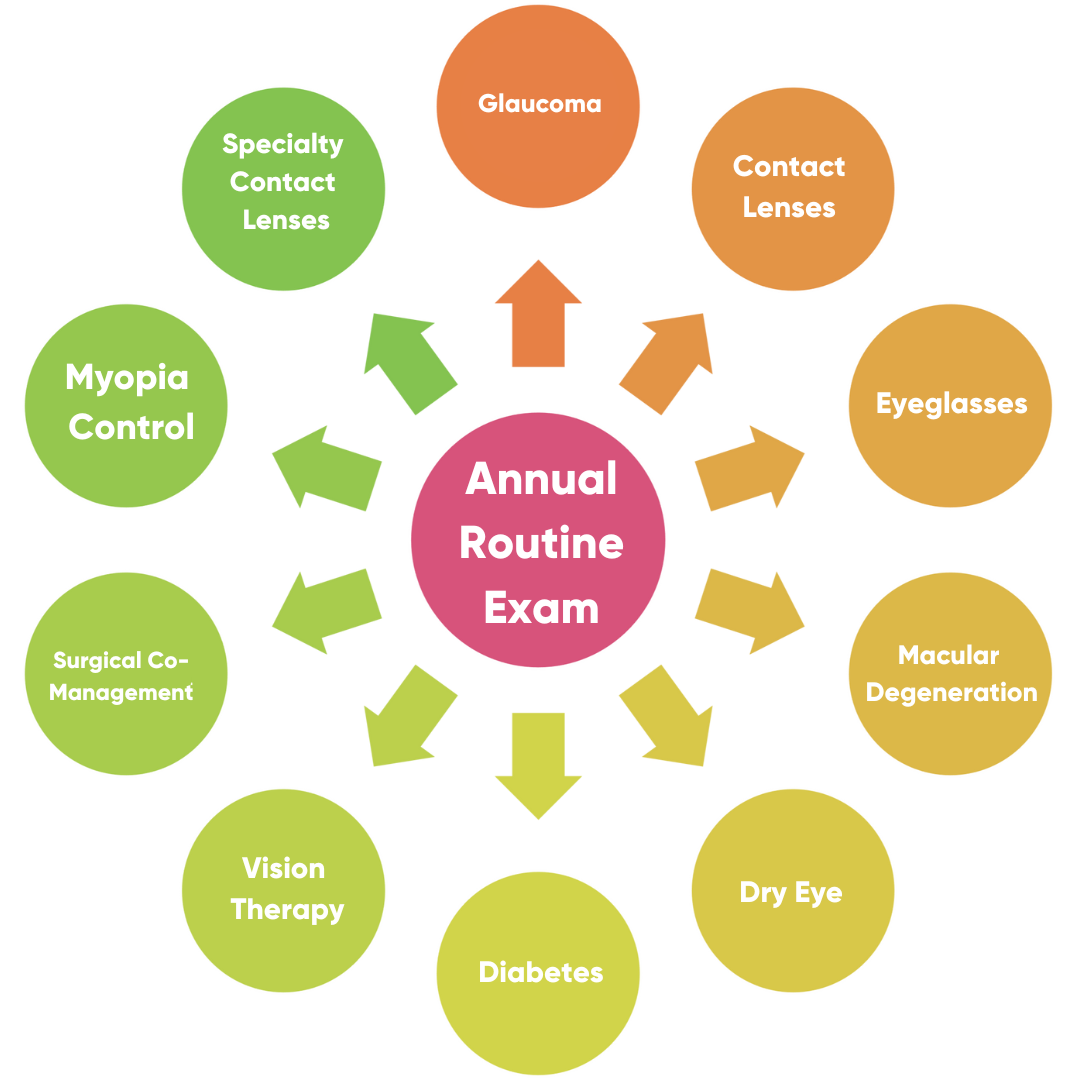The Comprehensive Eye Exam
Your eyesight is precious. Don’t take it for granted.
Many people often think that they should see an eye doctor only when they have blurry vision or eye discomfort. Depending on how often symptoms occur determines how often they get a comprehensive eye exam.
-
Diabetes. Early signs of diabetes (retinopathy) are often seen inside the eye before being diagnosed.
-
Dry eye disease. The appearance of the eyelid and the eyelid glands (meibomian glands) can predict whether a patient will suffer from dry eye in the future or not. Want to wear your contact lenses for life? Make sure you don’t have early signs of dry eye disease.
-
Macular degeneration. If you have a family history of macular degeneration and/or we find early signs on your retina (even in 40 to 50-year-olds!), early treatment is helpful.
-
Glaucoma. Glaucoma is often called the thief of sight. It usually occurs without you knowing it. If you do know it, it is likely too late.
-
Myopic degeneration. The higher the amount of myopia (nearsightedness) a person has, the greater their risk of degenerative eye conditions like retinal detachment and macular degeneration. Early diagnosis of children with myopia is crucial! Myopia progression can be slowed!
The annual comprehensive eye exam includes a thorough examination of the eyelids, the front surface of the eye, the internal structures of the eye, and the internal surface of the eye to find and prevent sight-threatening eye diseases.
In addition to the conditions above, the annual eye exam also includes recommendations for cataract or Lasik surgery, consultations for headaches and eye misalignment (aka vision therapy), and recommendations for specialty contact lenses for hard-to-fit patients.

It is a lot. It is incredibly thorough. But again, Eyesight is Precious. We help our patients make the best decisions about their eyes so they can keep their eyes healthy for life.
Schedule your next exam with us and we’ll help you make the best decision for your eyesight!
The content on this blog is not intended to be a substitute for professional medical advice, diagnosis, or treatment. Always seek the advice of qualified health providers with questions you may have regarding medical conditions.

